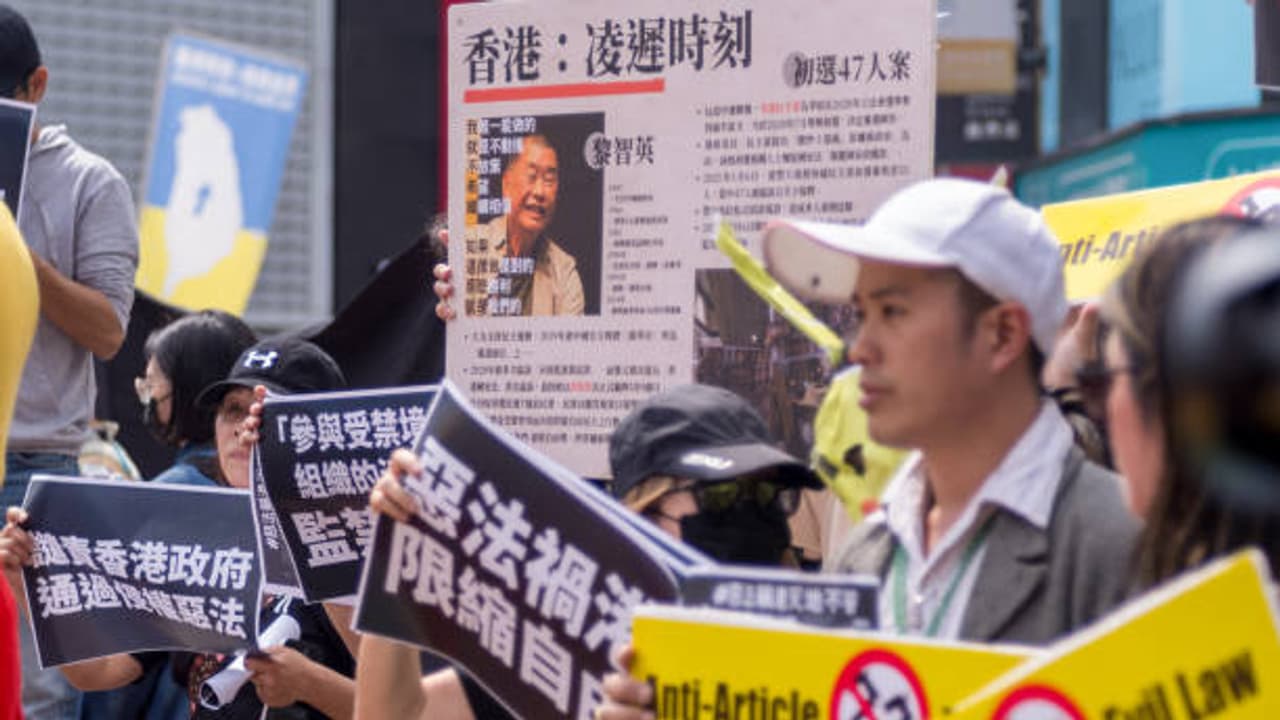Beijing’s new Article 23 security law is more than an assault on Hong Kong’s civil liberties—it is a direct risk to India’s trade, finance, and security interests.
Beijing’s new Article 23 security law is more than an assault on Hong Kong’s civil liberties—it is a direct risk to India’s trade, finance, and security interests. By tightening political control and eroding legal predictability, the law undercuts the trust that global markets—and Indian firms—depend on when using Hong Kong as a trading and financial hub. For New Delhi, this is no longer just a human rights story, but a live strategic risk.
Article 23 at a Glance
Enacted in March 2024 as the Safeguarding National Security Ordinance, Article 23 introduces sweeping offences—treason, insurrection, sabotage, espionage, “external interference,” and state secrets—layered on top of the 2020 National Security Law (NSL). Trials can be held behind closed doors, and penalties are severe: life imprisonment for treason and insurrection; up to 20 years for espionage; 14 years for external interference; and 7–10 years for sedition, including “aggravated” forms.
The law also expands police powers, allowing extended detention and curbs on access to counsel, deepening a climate of fear where political speech and business risk increasingly overlap.
Rule of Law and Financial Confidence
Financial hubs run on predictable rules, impartial courts, and due process. By those measures, Hong Kong has slipped. The World Justice Project’s 2024 Index shows declines in “Fundamental Rights” and “Constraints on Government Powers,” signalling fragility in precisely the areas global finance prizes.
Washington’s updated Hong Kong Business Advisory warns that vague terms like “state secrets,” “espionage,” and “external interference,” coupled with extraterritorial claims, could criminalise core financial functions—due diligence, data handling, analyst briefings—that underpin Indian banking, law, and trade activity in Hong Kong.
India’s Stakes in Hong Kong
India–Hong Kong merchandise trade reached US$28.17 billion in FY2022–23, making Hong Kong a vital re-export gateway and financial interlocutor. Hong Kong data shows India ranked as its 9th largest trading partner in 2024, with total bilateral trade at HK$201 billion.
Indian banks such as SBI, Bank of Baroda, and ICICI have operated in Hong Kong for decades, linking Indian corporate finance, trade credit, and treasury operations to the city’s legal ecosystem. Any erosion in Hong Kong’s rule of law therefore, directly affects Indian firms’ ability to transact securely and predictably.
Lawfare Without Borders
Article 23’s reach does not stop at Hong Kong’s borders. In June 2024, authorities invoked its new powers against six exiled activists in Britain, cancelling their passports and restricting financial support. The move signalled Beijing’s willingness to weaponise legal tools abroad.
For Indian firms, academics, or journalists, this raises concrete risks: cross-border research, data transfers, or civil society engagement could be recast as “external interference.” Compliance costs will rise, but so will the risk of inadvertent exposure to politicised prosecutions.
Why the Hub is Losing Its Edge
A financial centre thrives on stable, transparent rules. When expansive security statutes create ambiguous tripwires, enforcement becomes politicised, raising risk premiums and compliance costs. Surveys show that firms still cite headline confidence in Hong Kong’s system, but a growing number report operational friction linked to the security laws.
For India Inc., this matters. Capital raising, listing choices, and dispute resolution, once routed automatically through Hong Kong, may now be diversified toward Singapore, Dubai, or Mumbai. The longer Article 23’s shadow persists, the faster Hong Kong risks being downgraded from an indispensable hub to one of several nodes.
Security Implications for India
Beyond finance, Article 23 carries security implications. Hong Kong’s shrinking civic space intersects with Beijing’s intelligence operations, complicating the safety calculus for Indian professionals, students, and journalists in the region. Extraterritorial claims could entangle Indian nationals in investigations over lawful activities outside Hong Kong, creating a chilling effect.
As a re-export hub for China-facing supply chains, Hong Kong’s legal volatility also injects uncertainty into compliance, sanctions screening, and technology transfers affecting Indian firms.
What India Should Do
New Delhi should act early. Sector-specific advisories on due diligence, data localisation, and engagement protocols for Indian firms operating through Hong Kong are essential. Trade policymakers should hedge risks by accelerating rupee settlement channels, also expanding Singapore and Dubai conduits, and bolstering GIFT City’s capacity for listings, custody, and dispute resolution. Lastly, by diversifying India’s financial plumbing, policymakers can reduce exposure to Hong Kong’s creeping legal unpredictability.
Disclaimer: The opinions expressed are solely those of the author and do not reflect the views or stance of the organization. The organization assumes no responsibility for the content shared.
